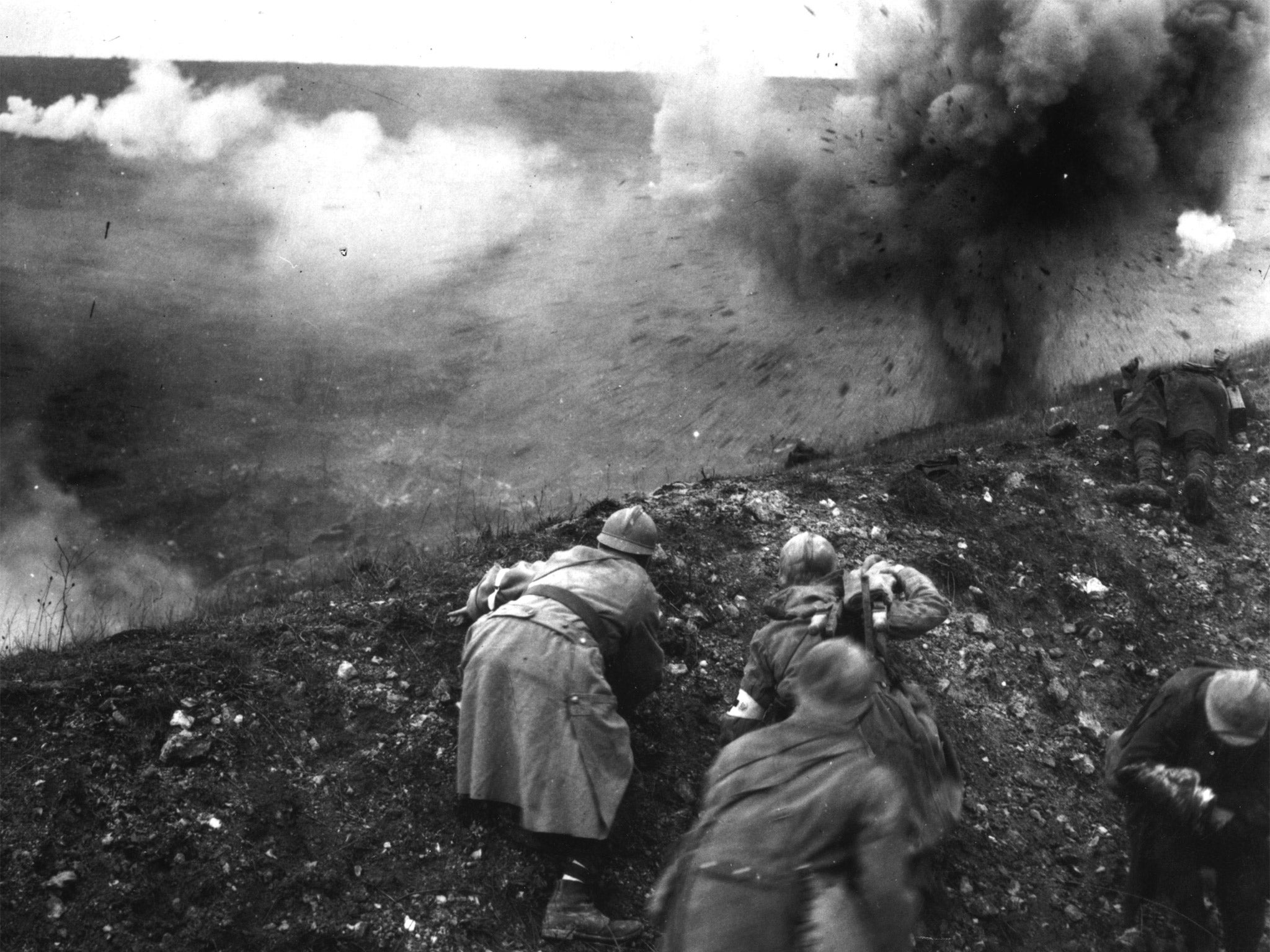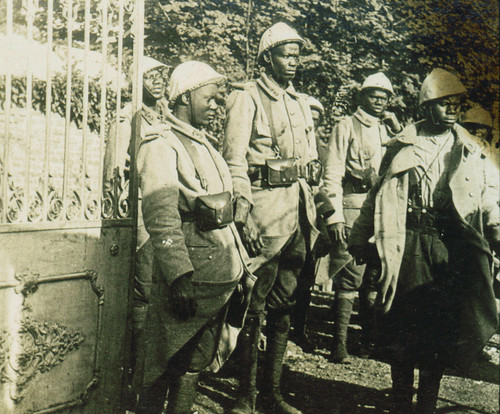 |
| German grenadiers and flamethrowers at Verdun. (http://www.wereldoorlog1418.nl) |
Instead, the battle would prove almost as costly to Germany as to France. And it drew off French support for the year's planned offensive by the Allies on the Western Front, weakening it and leading in some part to the slaughter that was the Somme. But even with the massive casualties they suffered, the Allied forces on the Somme made some headway over the course of the ensuing months. By the end of the year, despite hundreds of thousands of casualties, the Germans had captured almost no ground around Verdun that the French had not been able to recapture, and in seeking to bleed France white, the Germans had taken staggering losses of their own. Instead of crushing French national morale, the Germans had created of the city a heroic martyr. France issued all troops who served in the region a special medal; the lone supply route into the city was christened "the Sacred Way", and even the villages destroyed in the battle became sanctified as sacrifices to the preservation of France. A public drama, part living history, part secular passion play, is produced every summer to commemorate the siege.
 |
| French troops under fire at Verdun. (Getty) |
February here in the United States is also African-American history month. In 1916, American was still sitting out the war. The brave men of America's 92nd and 93rd Divisions, including the Harlem Hellfighters of the 369th Infantry, the Black Devils of the 370th, and the Buffalo Soldiers of the 371st and 372nd who would later serve in France's Red Hand Division were all still on America's shores.
But France had many African heroes in 1916. France's colonial empire served as a recruiting ground for a large segment of the French armed forces, and unlike Great Britain, France was not chary about bringing its black African soldiers to fight in Europe against white European foes. In fact, France had counted on La force noire to help defend metropolitan France since 1914, and had included both sub-Saharan African troops and North African troops in its strategic force planning since the previous century, recognizing that with the birthrate of metropolitan France unable to keep up with that of Germany, the empire would have to help defend the mother country. France also brought troops from its Southeast Asian dominions to help defend France.
 |
| French African troops. (ww1centenary.net) |
In June 2006, the African contribution to the defense of Verdun was recognized by the opening of a memorial to the Muslim troops--Algerians, Moroccans, Senegalese, and others--who fought for France in the Great War and especially those who died in defense of Verdun. Just last year, the president of Mali, visiting France, made sure to visit Verdun and pay tribute to the sons of his nation who had fallen in France.
Edited to add: I had the following exchange with a reader offline, and I thought it would enhance the post, so with his permission I'm including it.
Andrew: Interesting that you mention this, as it is strangely under reported. I had never heard about African troops until I saw a bit about them in a documentary several years ago. Besides telling their story, one thing I've never seen any cogent discussion about is the effect of their service *after* they returned home. Before WWI, the colonial European powers looked pretty invincible to the colonials. After having served in Europe and fought Europeans, I suspect the mindset back in those colonies changed for those returning veterans; that aside, they returned home as trained, seasoned troops with tactical and organizational knowledge. The usual narrative is that the European powers bled themselves out in WWI which set the stage for colonial independence movements; but I suspect that colonial veterans of the Great War may have played as much of a part when colonial independence movements took off a generation later.
The Hissing Fuse: There's been more discussion in recent decades of the effect of the wars on those countries. I'm hoping to do a couple of follow-up posts, as I ran across a lot of interesting resources on the web.
Plus, this only briefly touched on African troops in French service. Of course, the British and Germans had large bodies of African colonial troops as well, and the Brits recruited a good many men in the West Indies, both in military and civilian roles.
None of which touches on the European use of South Asians, Southeast Asians, and East Asians, both as soldiers and laborers. One interesting site I ran across covers a good many of these topics at once. Called "War and Colonies, 1914-1918", it catalogues a conference and exhibition of the same name.
Andrew: On a related note, one of my favorite anecdotes from WWI is the decision of Germany to pay back benefits to Askari veterans who served under von Lettow-Vorbeck. Many who reported to claim benefits had no record of their service, but even decades later were able to flawlessly perform the manual of arms given German commands. No good direct link in English, but it's mentioned with sources in the Wikipedia article for von Lettow-Vorbeck here and in a German article in a 1975 issue of the magazine Der Spiegel here.